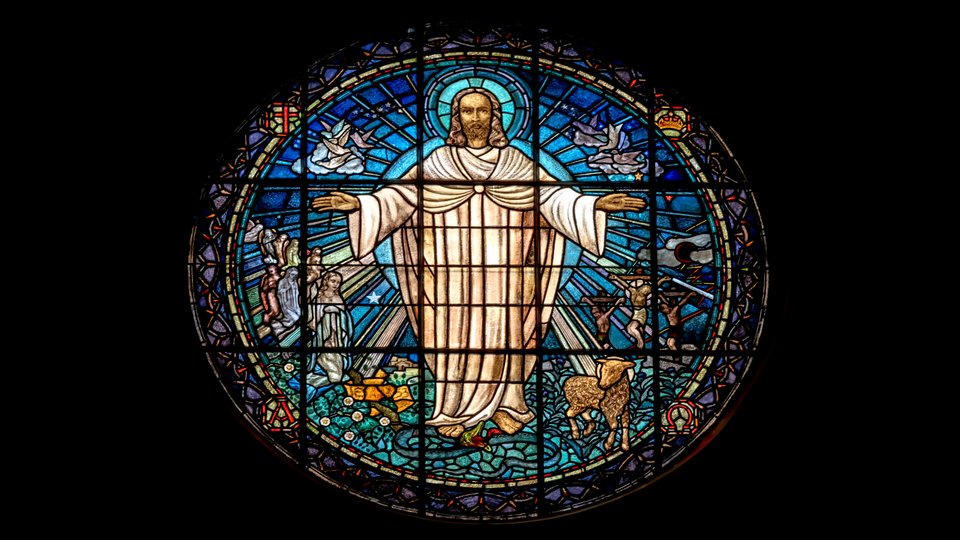Make Sure Eschatology Does Not Get Left Behind in Expository Sermons
I have heard J.I. Packer describe the Scripture as, “God preaching.” If so, God’s first gospel sermon is found in Genesis 3:15: “I will put enmity between you and the woman, and between your offspring and her offspring; he shall bruise your head, and you shall bruise his heel.” The protoevangelium is not only the first gospel; it is the first eschatology. The unfolding of that promise in the biblical narrative means that all of redemptive history generates a Christ-centered eschatological or Christotelic pull. Gerard Van Groningen explains the eschatology of Genesis 3:
To think of eschatology is to think of the messianic task. Biblical messianism and eschatology are inseparable. The seed of the woman will determine the full dimensions of the restored fellowship between the sovereign Lord and his viceregents. It will determine the future of mankind’s status, position, and function in the cosmos, and because of that, a future cosmos as well.[1]Messianic Revelation in the Old Testament, 114.
The entire Bible is rightly recognized as Christian Scripture because every part is organically connected to the telos (end, goal) of Scripture, Christ, and his eschatological kingdom. As Thomas N. Finger explains, “Biblical narrative directs all divine and human acts toward a cosmic climax.” [A Contemporary Anabaptist Theology: Biblical, Historical, Constructive, 512.]. Therefore, expository preaching that treats eschatology simply as an abstract doctrinal category severs Scripture from its hermeneutical key. Jesus is the eschatological man and his people, the church, represent the eschatological kingdom community who heed his voice and eagerly await the consummation of his kingdom.
Finger also notes that for the first Christians, “Their eschatology was not merely a set of beliefs concerning future events but also the attitude or atmosphere aroused by these events.”[2]Christian Theology: An Eschatological Approach, 1:102. Our expository sermons should be saturated with the same kind of eschatological attitude and atmosphere, no matter the text or genre.
Russell Moore helpfully writes,
The overarching story—with a beginning, a middle, and an end—makes sense of all of the smaller stories of our individual lives. In Scripture the eschaton is not simply tacked on to the gospel at the end. It is instead the vision toward which all of Scripture is pointing—and the vision that grounds the hope of the gathered church and the individual believer.
The future has a name: Jesus of Nazareth, like all doctrines of the faith, eschatology is the outworking of Christology. God’s final purpose with his creation is to “bring everything together in the Messiah, both things in heaven and things on earth in Him” (Eph. 1:10).[3]“Personal and Cosmic Eschatology,” in A Theology for the Church, ed. Daniel L. Akin, 858.
Biblical expository preaching does not excise a passage from the biblical metaplot to stage it for application. Instead, faithful expository preaching takes the hearer to the text in its natural habitat, so to speak; the task is not to fit the text to the world of the reader as much as it is to fit the reader to the world of the text. The expositor drags hearers into the amazingly diverse but unified biblical storyline so they can find themselves in Jesus and the story of his kingdom (Col 3:3) as they actively wait for eschatological consummation in Christ.
Christocentric, eschatologically-oriented expositional preaching will not mute the call to obey the moral and ethical imperatives of Scripture (1 Cor 10:11). To the contrary, such an approach must undergird the call to obey because it provides the only possible context for obedience—faith. Sanctification, just as justification, is by faith alone. Dennis Johnson explains, “Sanctification, no less than justification, must come by grace alone, through faith alone—we grow more like Christ only by growing more consistent in trusting Christ alone, thinking, feeling, acting, ‘in line with the truth of the gospel’ (Gal. 2:14).”[4]Him We Proclaim, 55-56. Genuine spiritual motivation in preaching must be presented in terms of the Christ-centered eschatological hope of the gospel; people must be set free before they can walk in freedom.
Our sermons must communicate that the believer lives in the overlap of the ages, a time of constant warfare, a time in which God is at work rescuing sinners “from the domain [kingdom] of darkness” and transferring them “to the kingdom of His beloved Son” (Col 1:13). Anything less obscures the cosmic, hope-filled implications of the gospel. The believer presently participates in the age to come, while at the same time living in this sin-filled suffering world. As George Eldon Ladd explains, “Because of Christ’s death, the justified person stands already on the age-to-come side of the eschatological judgment, acquitted of all guilt…Thus, believers live in a tension of experienced and anticipated eschatology.”[5]A Theology of the New Testament, 597.
The entire biblical narrative is infused with Gospel-centered eschatological hope. It would be too much to say that theology is eschatology, but it would be too little to say anything less than that all theology is eschatological. Tragically, eschatology is often considered a non-essential or specialized theological category, exclusively the domain of academic theologians, theology nerds, or wild-eyed chart toting and date setting end-times fanatics (who are often avoiding the genuine personal implications of biblical eschatology).
The truth is, when the Christ-centered eschatological pull of Scripture is forsaken in expository sermons, it is Christian hope that gets left behind.
David E. Prince is the Pastor of Preaching and Vision at Ashland Avenue Baptist Church in Lexington, Kentucky, and Assistant Professor of Christian Preaching at the Southern Baptist Theological Seminary.
References



